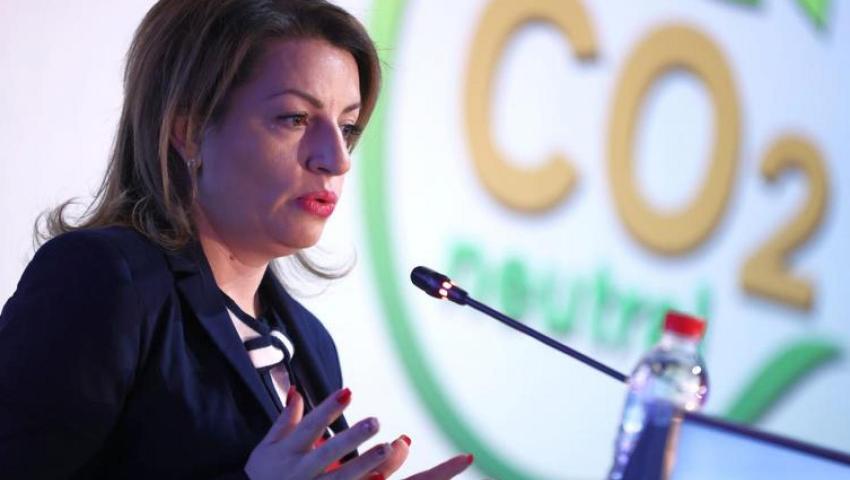Renewable energy investments will be in line with requirements for environmental protection, said Deputy Minister of Ecology Reneta Koleva

"Behind each of the priorities in the Strategic Vision for the Sustainable Development of Bulgaria's Electricity Sector until 2053, including the deployment of new capacities from renewable energy sources, there are investment intentions that will be consistent with environmental legislation to ensure a reduction in emissions and environmental protection." This was said by the Deputy Minister of Environment and Water Reneta Koleva at the forum "Together for less CO2 emissions" in Sofia Tech Park, organized by the German-Bulgarian Chamber of Industry and Commerce.
RES and environment
In front of the participants in the forum - representatives of the government, business and local authorities, she pointed out that at the national level our country has foreseen a completely new approach of investments and measures, which also make up our plan for recovery and sustainability, explaining that the efforts are directed in three main directions - creation of conditions for accelerated implementation of RES and hydrogen, strengthened actions to increase the energy efficiency of the economy and sustainable mobility in populated areas.
She also recalled that our country is in the top three of the EU in terms of the percentage of territories falling within the pan-European network of protected areas "NATURA 2000". Nearly 35 percent of Bulgaria's territory is under protection and with a limited possibility to deploy RES. "Nevertheless, I believe that our country has significant potential in this aspect, and the challenge today is to identify all the opportunities and take those decisions that will stimulate change," said the deputy minister.
The vision and course of European policy sets new incentives and offers a wide range of opportunities to make sustainability a reality in all spheres of our economy and our development and common future. All member states and all sectors of the economy contribute to the implementation of the pan-European goal in the EU legislative framework "Fit for 55". The distribution of efforts between them is mainly provided by two complex legislative instruments - the Directive on the European Emissions Trading Scheme (ETS) and the Effort Sharing Regulation (ESR), which introduces specific national targets for reducing greenhouse gas emissions in the range of - 10% (for Bulgaria) to -50% (for Sweden) compared to the levels of 2005, explained Deputy Minister Koleva.
More incentives for households
Reneta Koleva also noted the contribution of the additionally stimulated access of households to measures for sanitation and decarbonization of the heating and cooling systems of buildings, as well as the introduction of transport with zero emissions and low-emission zones. This will lead to significant benefits in both reducing emissions and deploying more green energy and jobs, she pointed out.
In conclusion, Deputy Minister Koleva stressed that the green transformation requires a fundamental change in our thinking and behavior in society, in the ways of functioning and work of institutions, businesses, and local communities, which is everyone's responsibility and must start now.
